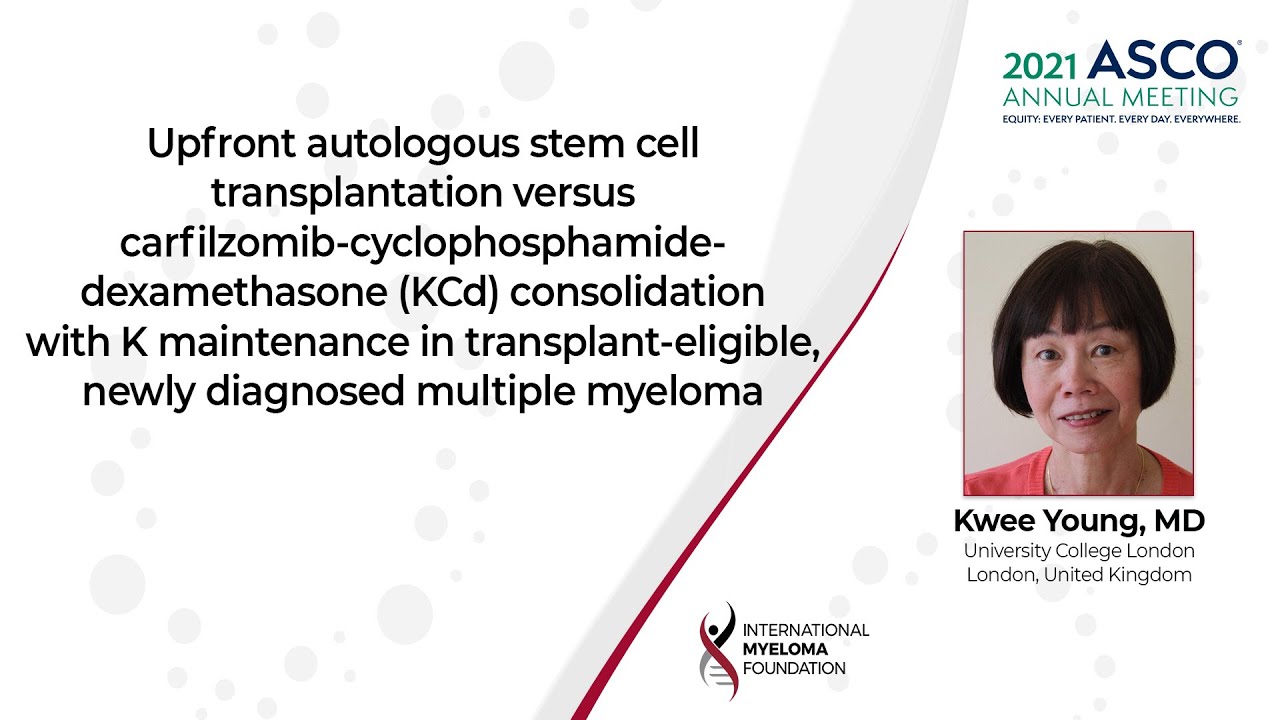

The purpose of this study is to evaluate and compare the effectiveness of new methods of measuring more accurately for minimal residual disease following bone marrow/stem cell transplant in patients who have multiple myeloma. The study will also assess patient perceived quality of life in connection to the use of intensive treatments. A Study to Evaluate and Compare Effectiveness Among New Measuring Methods to Find Minimal Residual Disease Following Stem Cell Transplant for Multiple Myeloma.The primary research question is: how does hematopoietic cell transplantation affect patients' physical performance? The purpose of this study is to examine and report the physical performance capabilities of patients receiving hematopoietic cell transplantation. A Study to Examine and Report the Physical Performance Capabilities of Patients Receiving Hematopoietic Cell Transplantation.The purpose of this study is to evaluate the performance of the wearable tPatch device when compared to an oral temperature measuring device in patients who have undergone a post-autologous bone marrow transplant. A Study to Evaluate the Use of a Novel Wearable Device for Temperature Monitoring in Cancer Patients Who Underwent Autologous Stem Cell Transplant.We will use the information from this study to help us to evaluate the use of this intervention to minimize emotional distress among HCT caregivers. Research has shown that viewing presentation of HCT stories from individuals who have similar experiences with their diagnosis and treatment and have a wide range of emotional expression or resolutions have beneficial effects on emotional wellbeing. The study is testing the effectiveness of digital story intervention in caregivers of patients who have recently undergone transplant for hematopoietic cell malignancies. Digital Storytelling Intervention for Cancer Patients Undergoing Hematopoietic Cell Transplantation.Some patients having an allogeneic transplant (transplant from non-twin donor stem cells) may be eligible to have their preparative chemotherapy before the transplant as an outpatient. Our aim is to offer outpatient stem cell transplant to an even broader group of patients with other blood disorders. For example, the patient must wear a mask when outside the home and adhere to a strict medication regimen. The patient and caregiver agree to follow guidelines to prevent infection.Note that other responsible caregivers may assist with transportation, accompanying patients to/from appointments, being at home and more. There should be one “point person” designated caregiver for communication purposes. Caregivers do not need medical training and can be a relative or friend. Have a responsible, designated caregiver(s) who can accompany the patient 24 hours a day, seven days a week.Live within an hour drive of the UChicago Medicine campus or willing to stay at a designated hotel or apartment near campus.Good overall physical condition with no evidence of significant heart or kidney disease or other relevant medical conditions.Under 70 years of age (in most cases).Diagnosed with multiple myeloma, lymphoma or other blood cancer and prescribed an autologous stem cell transplant (patient receiving their own stem cells).

Our program currently provides outpatient treatment to patients who meet the following criteria: Outpatient stem cell transplant is offered on a case-by-case basis after a thorough evaluation.


 0 kommentar(er)
0 kommentar(er)
